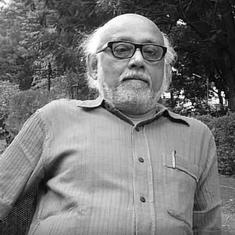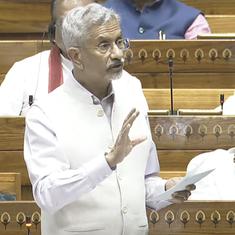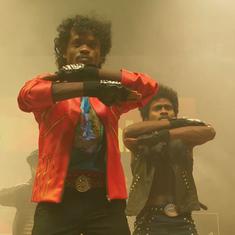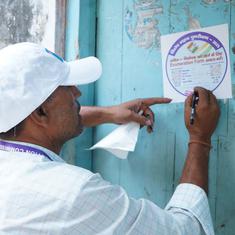This article originally appeared in The Field’s newsletter, Game Points, on August 14, 2024. Sign up here to get the newsletter directly delivered to your inbox every week.
The 2024 Paris Olympics concluded on Sunday with much pomp, passing on the duty of hosting the next Summer Games to Los Angeles. Amidst all the fanfare, the Indian flagbearers for the closing ceremony shooter Manu Bhaker and hockey goal keeper PR Sreejesh were all smiles, decked out in their official kit and waving the Indian flag with pride.
Bhaker had a brilliant Games, winning two bronze medals from three events, having reached the finals in all of them. Sreejesh capped off his international career with his second Olympic bronze.
But behind the smiles, the Indian contingent left the French capital with the lingering taste of disappointment.
Much like previous Olympic editions, Indian athletes are always besieged by over-the-top expectations as they head off to the Games. For many Indian athletes, such as sailor Vishnu Saravanan and rower Balraj Panwar, merely qualifying for the Olympics is a significant achievement considering the country’s standing in those sports.
However, for participants such as men’s badminton doubles pair Satwiksairaj Rankireddy and Chirag Shetty, their standing in their sport demanded a stronger showing than a quarter-final finish.
Two-time world champion boxer Nikhat Zareen and Tokyo 2020 silver medallist in weightlifting Mirabai Chanu were also expected to end on the podium.
India’s Olympics campaign had six fourth-place finishes. Had all those ended differently, the country would have been looking at a tally of 12 medals instead of six.
Bhaker, who won bronze in the women’s 10m air pistol and mixed team air pistol event, finished fourth in the women’s 25m pistol event. Had she got her last shot right, perhaps the story may have been different.
In Paris, wrestler Nisha Dahiya was seconds away from a semi-final bout before injury struck.
Keeping in mind India’s previous performances at the Olympics, this was a commendable showing from the Indian contingent in Paris. But if one were to look at the harsh truth, this was not a performance to be entirely satisfied with. The overall medal haul, in fact, wasn’t even the best India has managed at an edition of the Olympics.
There should be a great amount of empathy for what the athletes have gone through. Every Olympic-cycle, they put their personal lives on hold and go to unimaginable lengths to train. They spend countless hours just to throw a javelin one centimetre further. They take a thousand punches so they can land that one finishing blow. They hide every possible ounce of pain and injury just so they can compete, again and again.
The mentality of the athletes has changed. They train to be the best, not just also-rans. And even in their moments of triumph, they will notice the things that should have been better.
Like when javelin thrower Neeraj Chopra refused to celebrate his silver medal until a day later. Or when India’s hockey captain Harmanpreet Singh apologised, on camera, just moments after they won bronze for the team, for missing out on gold.
Over the course of the last two Olympic cycles, the country has been witness to a rapid growth of Indian sport beyond cricket and the occasional badminton star. Despite the troubles faced by the wrestlers and the regular incompetence of sports administrators, the country’s athletes continue to rise above and beyond.
Now that the Paris Olympics are over, one can expect that the campaign will be called out for what it truly was: a good effort, but still not good enough.










